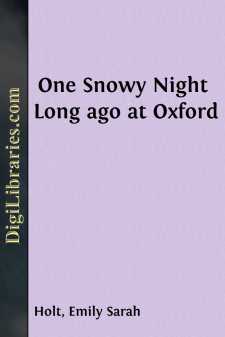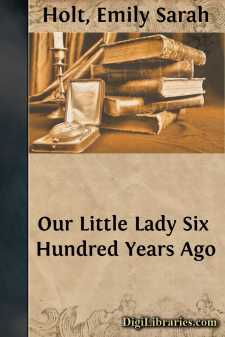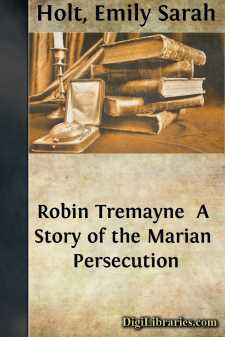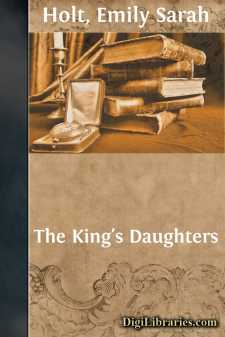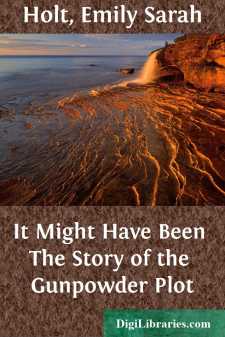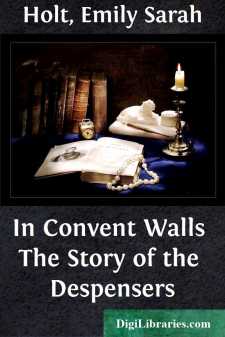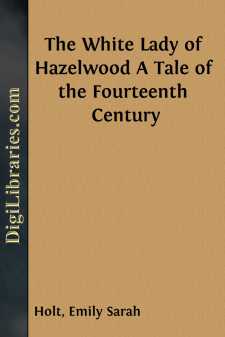Categories
- Antiques & Collectibles 13
- Architecture 36
- Art 48
- Bibles 22
- Biography & Autobiography 815
- Body, Mind & Spirit 144
- Business & Economics 28
- Children's Books 18
- Children's Fiction 14
- Computers 4
- Cooking 94
- Crafts & Hobbies 4
- Drama 346
- Education 58
- Family & Relationships 59
- Fiction 11835
- Games 19
- Gardening 17
- Health & Fitness 34
- History 1378
- House & Home 1
- Humor 147
- Juvenile Fiction 1873
- Juvenile Nonfiction 202
- Language Arts & Disciplines 89
- Law 16
- Literary Collections 686
- Literary Criticism 179
- Mathematics 13
- Medical 41
- Music 40
- Nature 180
- Non-Classifiable 1768
- Performing Arts 7
- Periodicals 1453
- Philosophy 65
- Photography 2
- Poetry 896
- Political Science 203
- Psychology 44
- Reference 154
- Religion 515
- Science 126
- Self-Help 85
- Social Science 83
- Sports & Recreation 34
- Study Aids 3
- Technology & Engineering 60
- Transportation 23
- Travel 463
- True Crime 29
Emily Sarah Holt
Emily Sarah Holt (1836-1893) was a prolific English novelist known for her historical fiction, particularly focusing on the Tudor period. Her works often blended romance with detailed historical accuracy, appealing to a wide audience fascinated by the Renaissance era. Holt's novels were noted for their strong female protagonists and vivid portrayal of English society during pivotal historical moments.
Author's Books:
Sort by:
by:
Emily Sarah Holt
Preface. The story of the following pages is one of the least known yet saddest episodes in English history—the first persecution of Christians by Christians in this land. When Boniface went forth from England to evangelise Germany, he was received with welcome, and regarded as a saint: when Gerhardt came from Germany to restore the pure Gospel to England, he was cast out of the vineyard and slain....
more...
by:
Emily Sarah Holt
Six Hundred Years ago—What things were like. The afternoon service was over in Lincoln Cathedral, and the congregation were slowly filing out of the great west door. But that afternoon service was six hundred years ago, and both the Cathedral and the congregation would look very strange to us if we saw them now. Those days were well called the Dark Ages, and how dark they were we can scarcely realise...
more...
by:
Emily Sarah Holt
Preface. More than three hundred years have rolled away since the events narrated in the following pages stirred the souls of men; since John Bradford sat down to his “merry supper with the Lord;” since Lawrence Saunders slept peacefully at the stake, lifted over the dark river in the arms of God; since Ridley and Latimer, on that autumn morning at Oxford, lighted that candle in England which they...
more...
by:
Emily Sarah Holt
Choosing a new gown. “Give you good den, Master Clere!” said a rosy-faced countrywoman with a basket on her arm, as she came into one of the largest clothier’s shops in Colchester. It was an odd way of saying “Good Evening,” but this was the way in which they said it in 1556. The rosy-faced woman set down her basket on the counter, and looked round the shop in the leisurely way of somebody...
more...
by:
Emily Sarah Holt
Chapter One. The Dwellers at Selwick Hall. “He would be on the mountain’s top, without the toil and travail of the climbing.”—Tupper. Selwick Hall, Lake Derwentwater, October ye first, Mdlxxix. It came about, as I have oft noted things to do, after a metely deal of talk, yet right suddenly in the end. Aunt Joyce, Milly, Edith, and I, were in the long gallery. We had been talking a while...
more...
by:
Emily Sarah Holt
Chapter One. The last Night in the Old Home. “Which speaks the truth - fair Hope or ghastly Fear? God knoweth, and not I.Only, o’er both, Love holds her torch aloft, And will, until I die.” “Fiddle-de-dee! Do give over snuffing and snivelling and sobbing, and tell me if you want your warm petticoat in the saddle-bag. You’d make a saint for...
more...
by:
Emily Sarah Holt
Preface. The historical portion of this tale has been partially narrated in one of my previous volumes, “In All Time of our Tribulation,” in which the Despenser story is begun, and its end told from another point of view. That volume left Isabelle of France at the height of her ambition, in the place to reach which she had been plotting so long and so unscrupulously. Here we see the Nemesis come...
more...
by:
Emily Sarah Holt
Preface. It is said that only travellers in the arid lands of the East really know the value of water. To them the Well in the Desert is a treasure and a blessing: unspeakably so, when the water is pure and sweet; yet even though it be salt and brackish, it may still save life. Was it less so, in a figurative sense, to the travellers through that great desert of the Middle Ages, wherein the wells were...
more...
by:
Emily Sarah Holt
Preface. On the crowded canvas of the fourteenth century stands out as one of its most prominent figures that of the warrior Countess of Montfort. No reader of Froissart’s Chronicle can forget the siege of Hennebon, and the valiant part she played in the defence of her son’s dominions. Actuated by more personal motives than the peasant maid, she was nevertheless the Joan of Arc of her day, and of...
more...
by:
Emily Sarah Holt
Preface. This is not a story which requires much preface. The tale speaks for itself. But it is only right to inform the reader, that the persons who play their parts in it (apart from the historical details given) are all fictitious, excepting John Laurence and Agnes Stone. It rests, under God, with the men and women of England—and chiefly with those of them who are young now—whether such events...
more...


